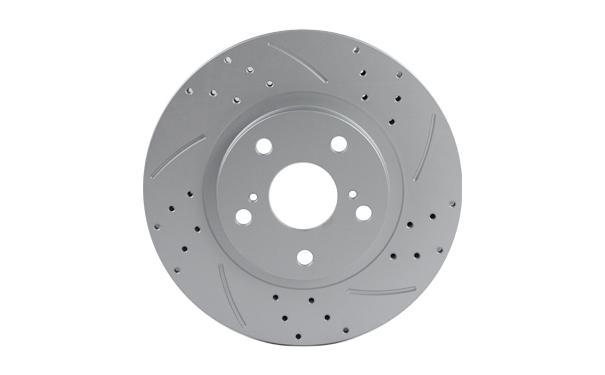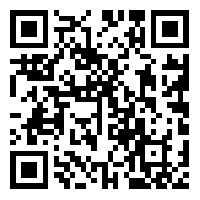Brake disc shaking is a common fault phenomenon in the braking process of vehicles, usually manifested as significant shaking or vibration of the steering wheel, body or brake pedal during braking. This phenomenon not only affects driving comfort, but may also pose a threat to driving safety. There are various reasons for brake disc shaking, which may involve issues with the brake system itself or be related to wear or failure of other vehicle components. The following will analyze in detail the possible causes and solutions of brake disc vibration from multiple aspects.
1. Brake disc deformation is one of the common causes of brake shake. During long-term use, brake discs may undergo thermal or mechanical deformation due to frequent braking and high temperature effects. Thermal deformation is usually caused by sudden cooling of the brake disc at high temperatures (such as when driving through water), resulting in uneven deformation on its surface. Mechanical deformation may be due to improper installation, external impact, or quality issues with the brake disc itself.
Solution: If the brake disc is deformed, it usually needs to be reworked (such as turning) or replaced with a new brake disc directly. When replacing brake discs, it is recommended to choose products with reliable quality and ensure that the installation process complies with specifications.
2. Uneven wear on the surface of the brake disc can also cause brake shaking. This type of wear may be caused by uneven brake pad material, improper installation, or foreign objects (such as oil stains and dust) on the surface of the brake disc. When brake pads come into contact with brake discs, uneven surfaces can cause uneven distribution of friction, leading to shaking.
Solution: Check the surface condition of the brake disc and brake pads, and clean or replace them if necessary. If the brake disc is severely worn, it may need to be reworked or replaced.
3. The quality of brake pads directly affects the braking effect and shaking problem. Poor quality brake pads may contain hard particles or uneven materials, which can cause irregular friction when in contact with the brake disc, leading to shaking. In addition, uneven wear or improper installation of brake pads can also lead to similar problems.
Solution: Choose reliable brake pads and ensure they are installed correctly. Regularly check the wear of brake pads and replace them promptly if necessary.
4. Loose or damaged components of the brake system (such as brake calipers, brake disc fixing bolts, etc.) may also cause brake shaking if they become loose or damaged. For example, if the brake caliper cannot evenly clamp the brake disc, it will cause uneven distribution of braking force, leading to shaking.
Solution: Check all components of the brake system to ensure they are securely installed and undamaged. Tighten or replace as necessary.
5. Wheel dynamic balance problem Poor wheel dynamic balance can also cause brake shaking, especially at high speeds. If there is a problem with the dynamic balance of the wheels, the vehicle will generate additional vibrations during braking, which will be transmitted to the steering wheel and body through the steering system.
Solution: Perform wheel dynamic balance testing and make adjustments if necessary. Regularly check the wear of tires to ensure their good condition.

6. Suspension system malfunction. Suspension system malfunctions (such as damaged shock absorbers, loose suspension arms, etc.) may also cause brake shaking. The function of the suspension system is to absorb the vibration of the road surface. If there is a problem, the vehicle will generate additional vibration during braking, causing shaking.
Solution: Check all components of the suspension system to ensure they are in good condition. Repair or replace as necessary.
7. Steering system problems. Steering system malfunctions (such as loose steering rods, damaged steering gear, etc.) may also cause brake shaking. The steering system is closely related to the braking system. If there is a problem with the steering system, the vehicle will generate additional vibration during braking, causing shaking.
Solution: Check all components of the steering system to ensure they are in good condition. Repair or replace as necessary.
8. Tire problems: The condition of the tires can also affect brake shake. If the tire wear is uneven, the tire pressure is too high or too low, or there are quality problems with the tire itself, it may cause the vehicle to shake when braking.
Solution: Regularly check the wear and pressure of the tires to ensure they meet the standards. Replace or adjust tires as necessary.
9. Improper driving habits can also lead to brake shaking. For example, frequent sudden braking or prolonged high-speed braking can cause the brake discs and pads to overheat, resulting in deformation or uneven wear, which in turn can cause shaking.
Solution: Develop good driving habits and avoid frequent sudden braking and prolonged high-speed braking. It is recommended to use engine braking to reduce the burden on the braking system on long downhill sections.
10. Environmental factors (such as driving through water, slippery roads, etc.) may also cause brake shaking. For example, after driving through water, a water film may form on the surface of the brake disc, resulting in poor braking performance and causing shaking.
Solution: When driving in special road conditions, pay attention to controlling the speed and braking method. After driving through water, you can lightly press the brake to remove the water film on the surface of the brake disc.
Brake disc shaking is a complex problem that may involve multiple aspects such as braking system, suspension system, steering system, tires, etc. To solve this problem, it is necessary to carefully inspect all relevant components of the vehicle, identify the specific cause, and then take corresponding repair or replacement measures. In addition, developing good driving habits and regularly maintaining the vehicle are also effective ways to prevent brake shake. If the car owner is unable to judge or solve the problem on their own, it is recommended to promptly send the vehicle to a professional repair shop for inspection and maintenance to ensure driving safety.
手机:13964587298 / 18354519598
在线QQ:381214835
电话:0535-2836718
E-mail:381214835@qq.com
地址:莱州市土山镇工业园
